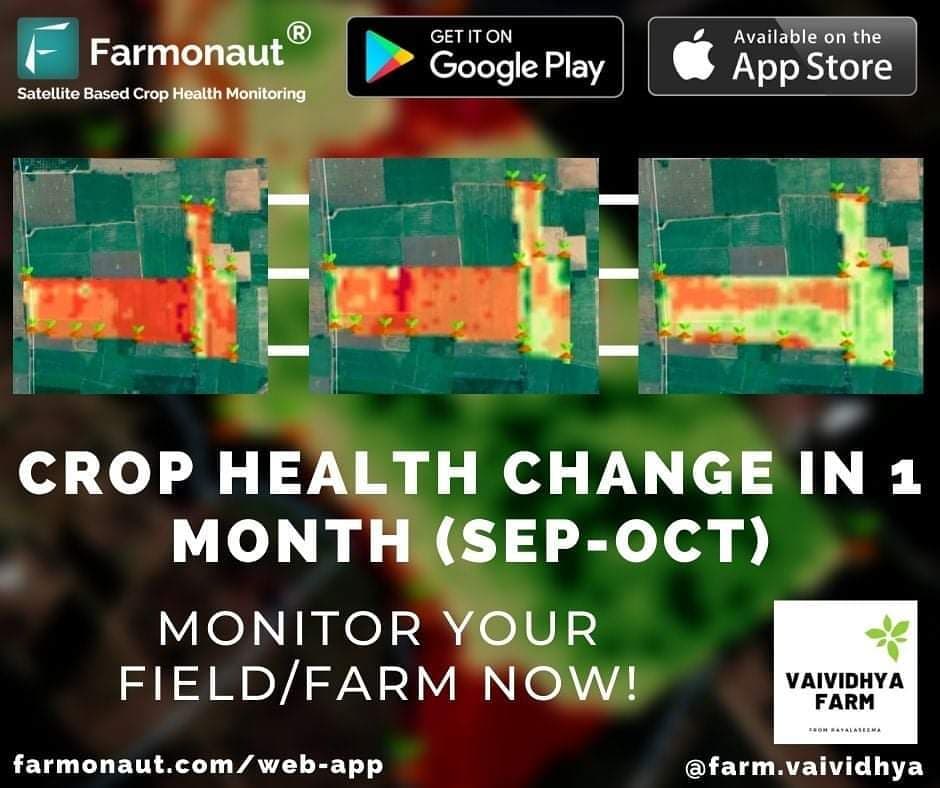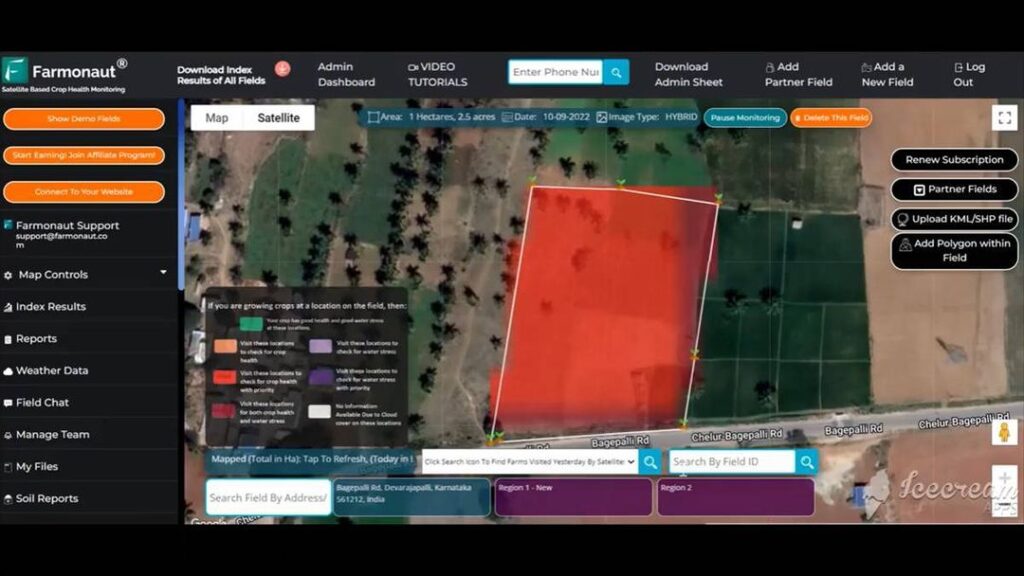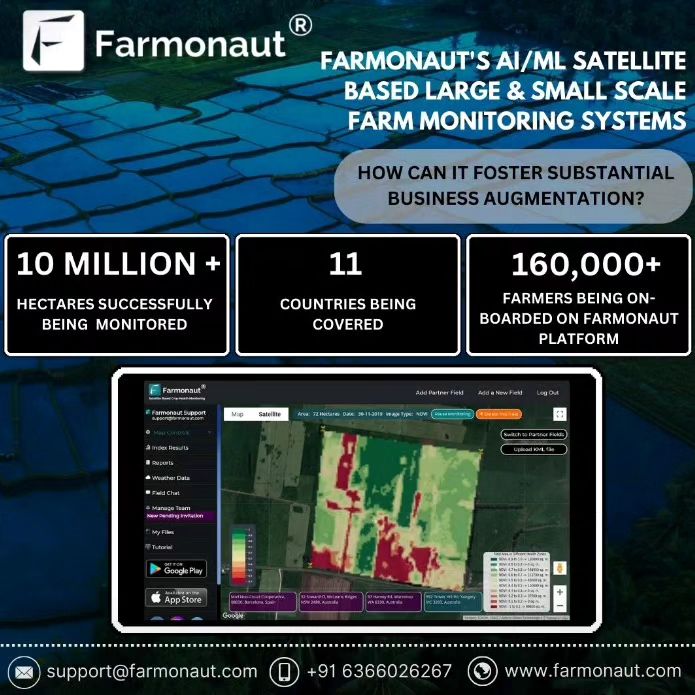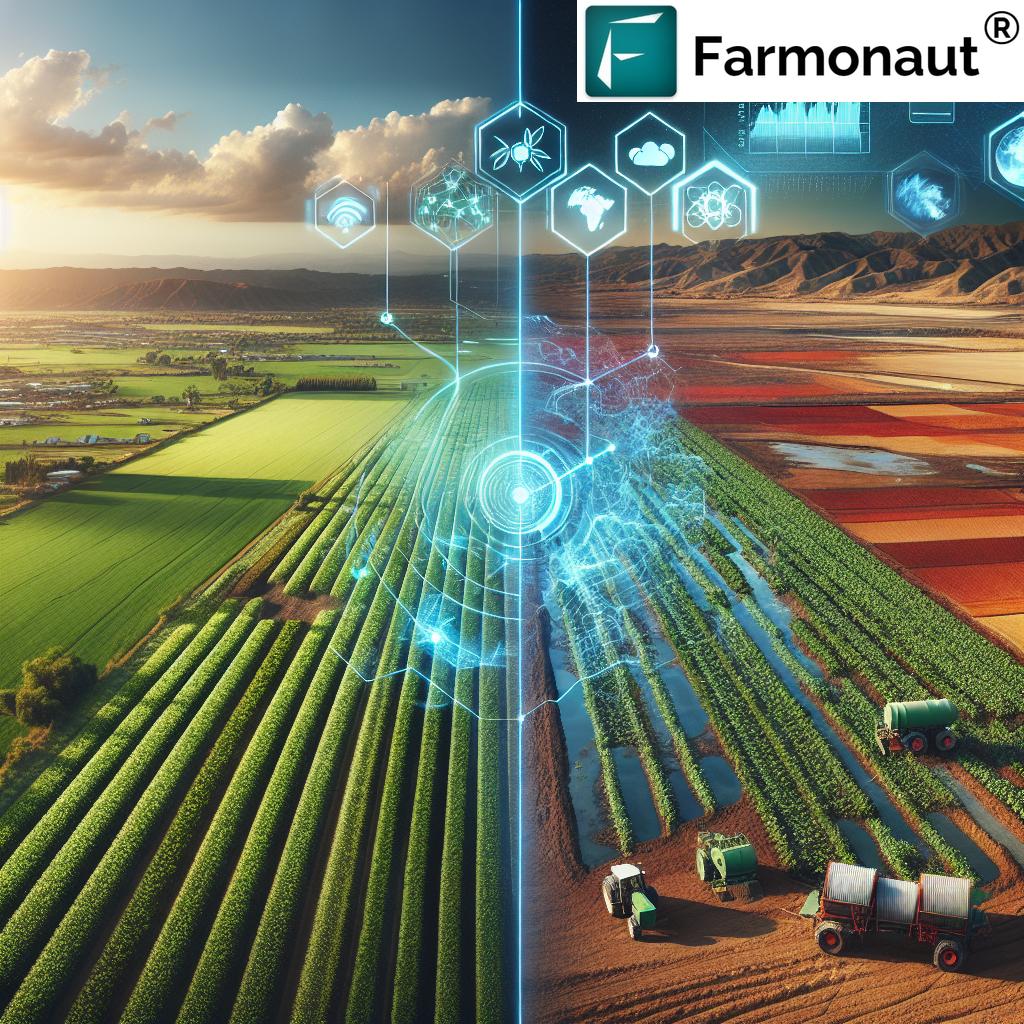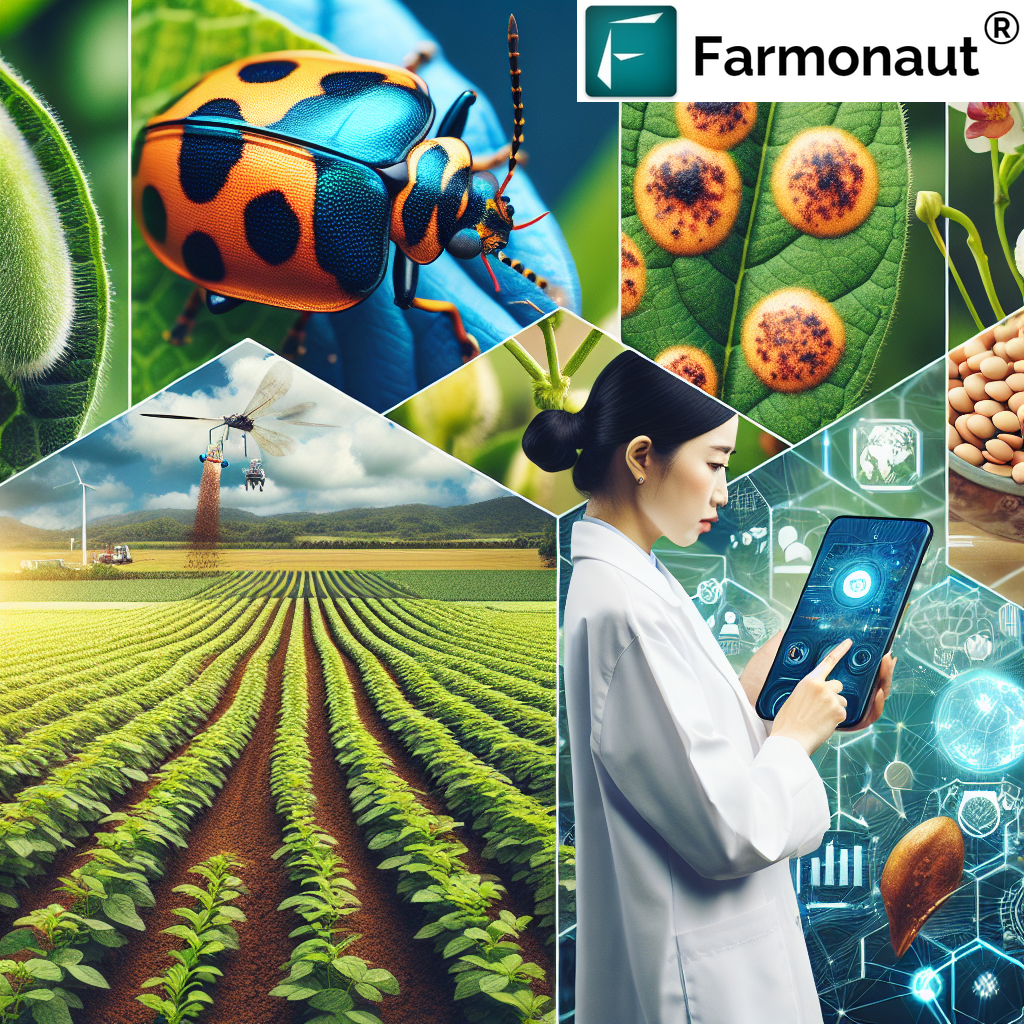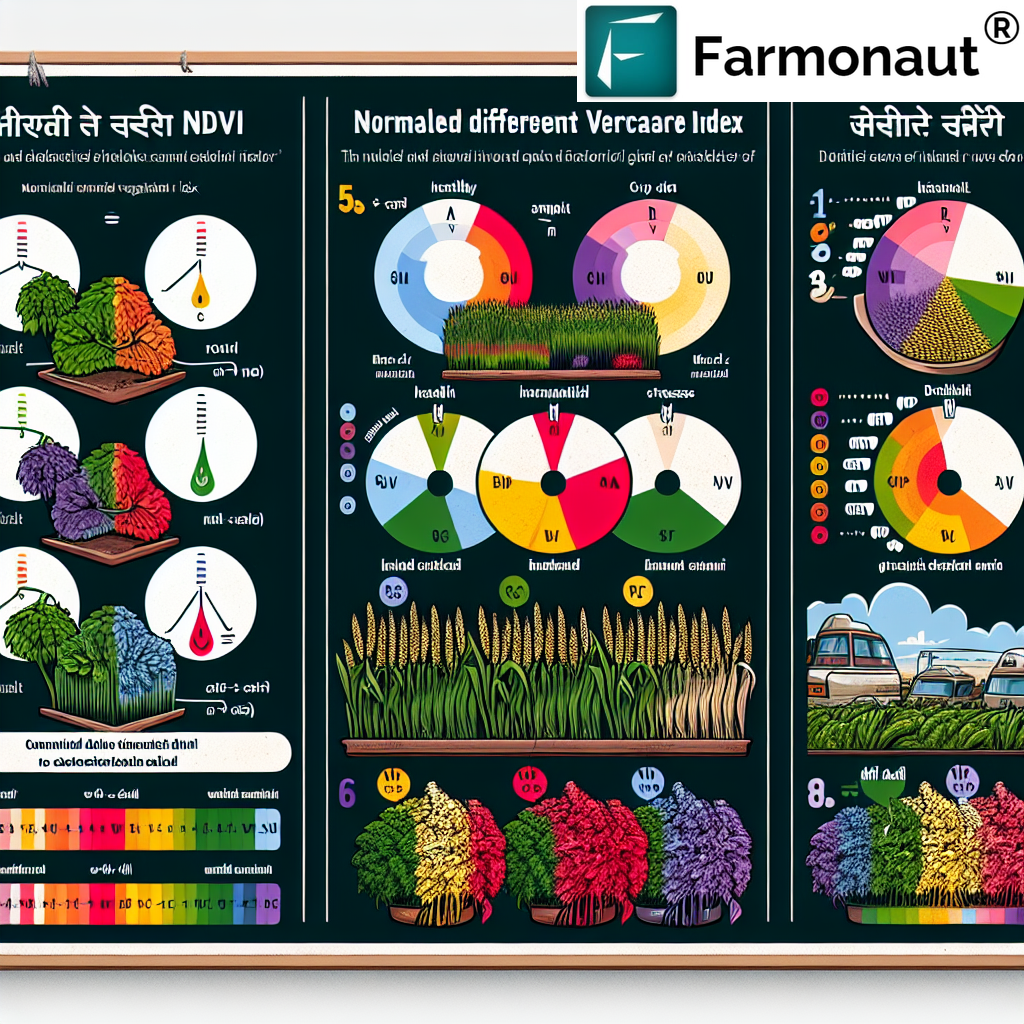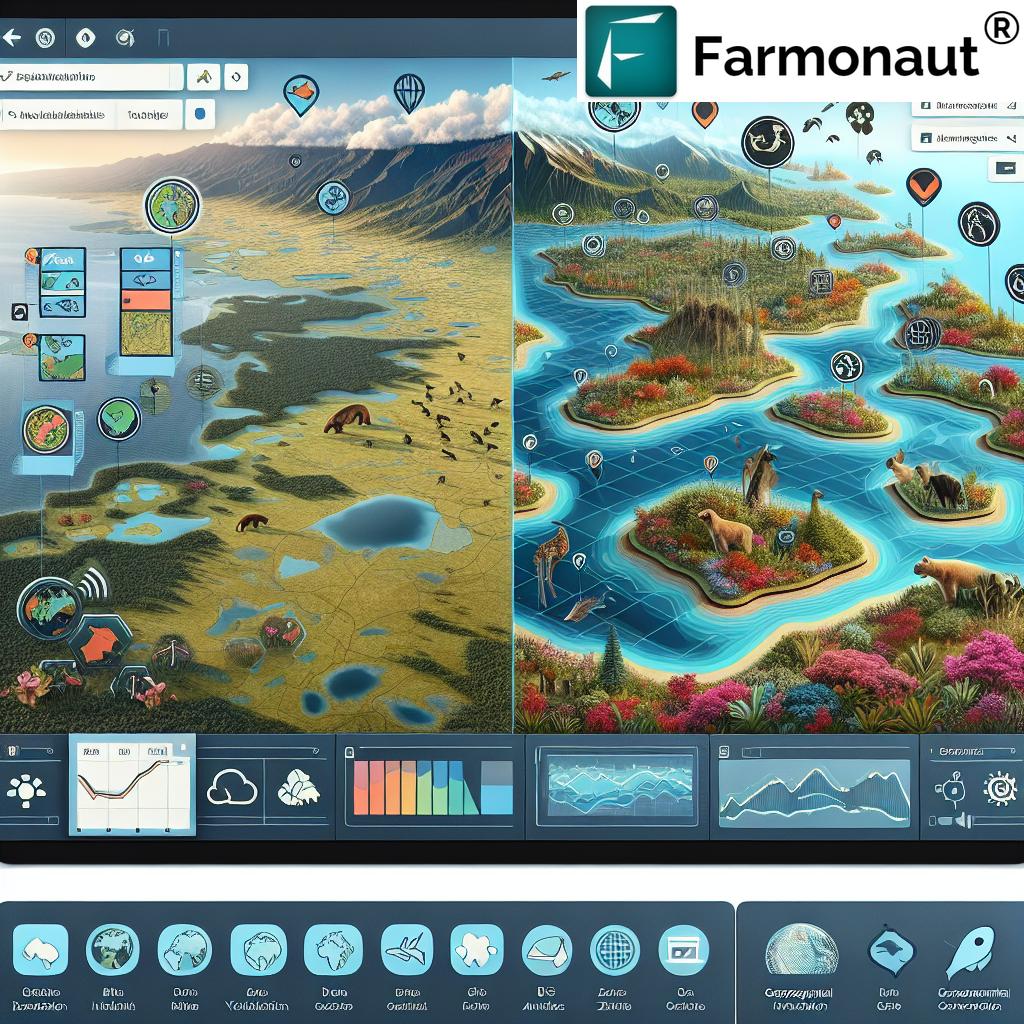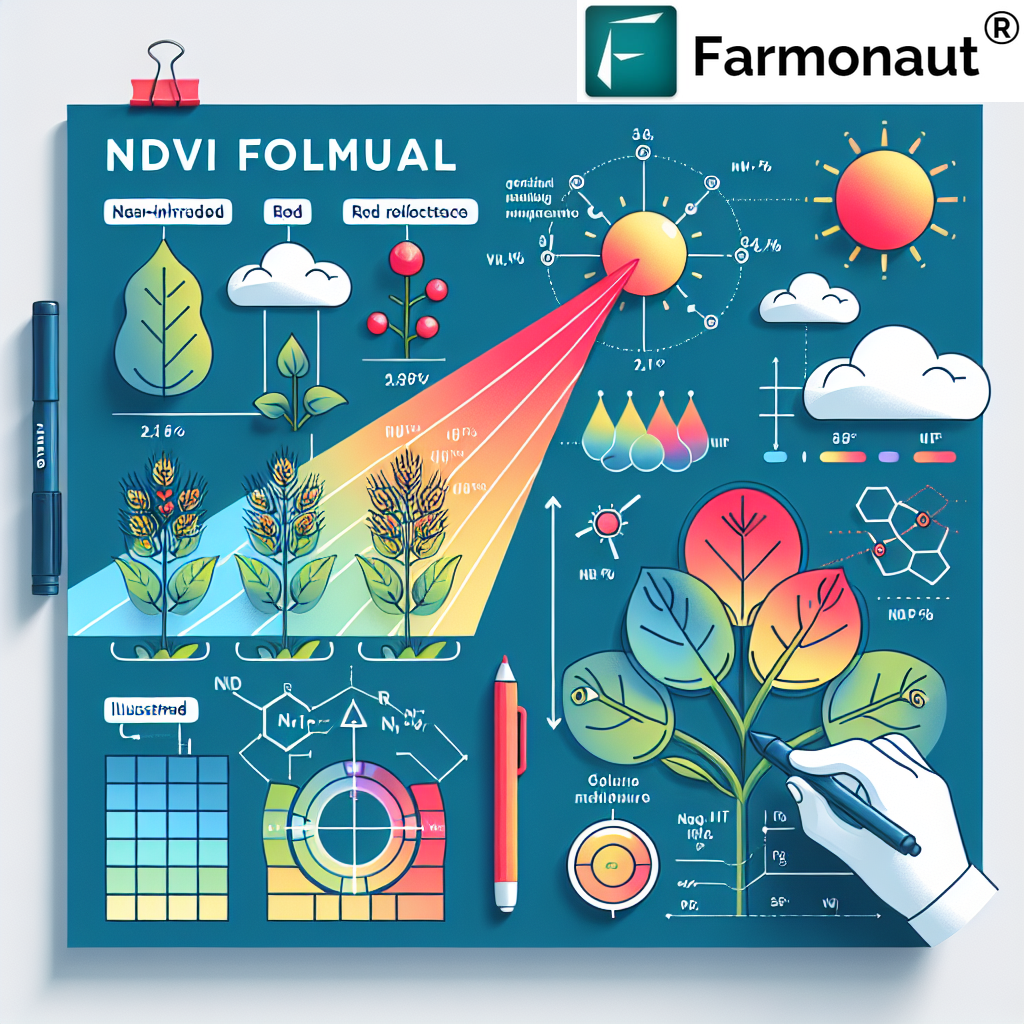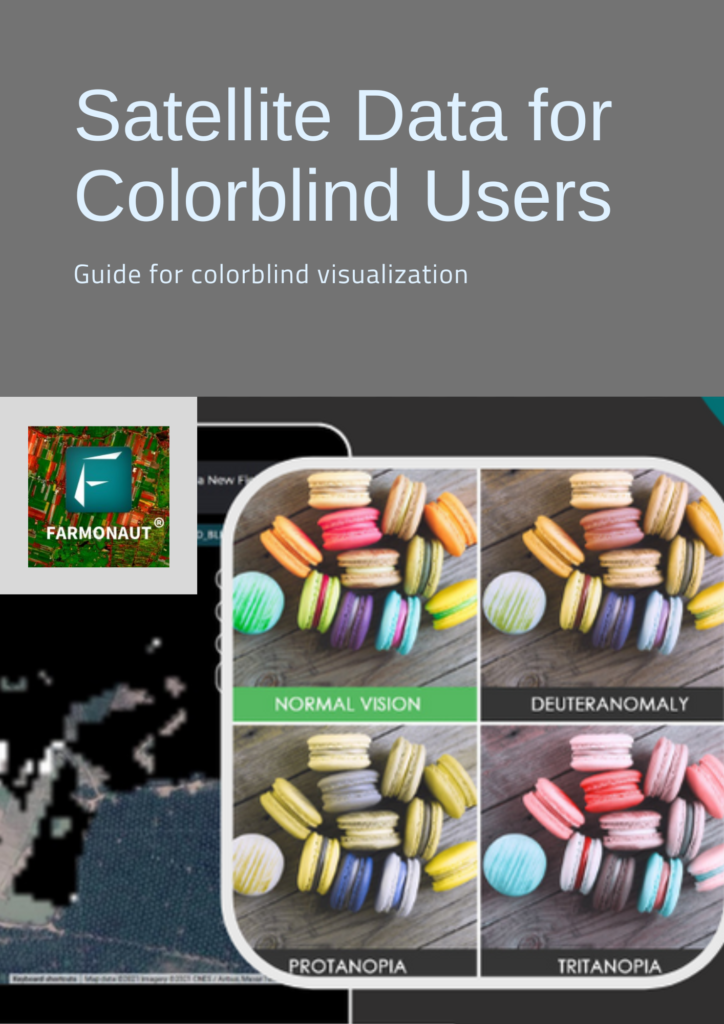EUDR Compliance: How Coffee Farms Can Meet EU Deforestation Regulations with Geolocation Data
“The EU Deforestation Regulation affects over 3 million smallholder coffee farmers worldwide, impacting 80% of global coffee production.”
In the ever-evolving landscape of global agriculture and sustainability, the European Union (EU) has taken a bold step forward with the introduction of the EU Deforestation Regulation (EUDR). This groundbreaking legislation is set to transform the coffee industry, placing a spotlight on sustainability and traceability like never before. As we navigate these new waters, it’s crucial for coffee producers, roasters, and importers to understand the implications and prepare for compliance.
At Farmonaut, we’re at the forefront of agricultural technology, providing innovative solutions that can help the coffee sector meet these new challenges head-on. Our expertise in remote sensing and GIS technology offers valuable support for those grappling with the complexities of EUDR compliance. Let’s dive into what this regulation means for the coffee industry and how geolocation data can be the key to unlocking compliance.
Understanding the EU Deforestation Regulation (EUDR)
The EUDR is a pivotal piece of legislation aimed at ensuring that products sold in the EU market do not contribute to deforestation or forest degradation. For the coffee industry, this means a significant shift in how we track and verify the origin of our beloved beans.
- Compliance deadline: Initially set for December 30, 2024, but a proposed delay may push this to December 30, 2025, for large companies and June 30, 2026, for micro- and small enterprises.
- Key requirement: Coffee imported into the EU must be “deforestation-free” after December 30, 2020.
- Due diligence: Importers and exporters must file a due diligence statement (DDS) that includes precise geolocation data of coffee farms.
The implications of these requirements are far-reaching, particularly for an industry where traceability has historically been challenging. According to Eileen Gordon-Laity, Secretary General of the European Coffee Federation (ECF), the EUDR demands extensive traceability measures to track coffee’s journey from farm to consumer.

The Challenge for Coffee Farms
The coffee supply chain is notoriously complex, often involving numerous intermediaries between the farm and the final product. This complexity presents significant challenges in implementing EUDR compliance:
- Traceability gaps: Approximately 50% of coffee imports to the EU are currently categorized as “disenfranchised,” lacking clear documentation and certification.
- Smallholder farmers: Many coffee producers, especially in developing regions, may lack the financial and technological means to meet compliance standards.
- Data collection: Accurately obtaining and verifying geolocation data for each coffee plot is a daunting task, particularly in remote areas.
These challenges underscore the need for innovative solutions that can bridge the gap between current practices and EUDR requirements. This is where geolocation data and remote sensing technology come into play.
The Role of Geolocation Data in EUDR Compliance
Geolocation data is at the heart of EUDR compliance for coffee farms. It provides the precise location information required to verify that coffee production is not contributing to deforestation. Here’s how geolocation data can help:
- Accurate farm mapping: Satellite imagery can be used to create detailed maps of coffee farms, including plot boundaries and size.
- Deforestation monitoring: Historical satellite data can prove that coffee plots were not created through recent deforestation.
- Supply chain transparency: Geolocation data can be linked to each batch of coffee, providing a clear trail from farm to cup.
At Farmonaut, we specialize in leveraging satellite technology and artificial intelligence to provide these crucial geolocation services. Our platform offers real-time crop health monitoring, AI-based advisory systems, and blockchain-based traceability solutions that can significantly ease the burden of EUDR compliance for coffee producers.
Explore our web app to see how we can support your EUDR compliance efforts: 
Technological Solutions for EUDR Compliance
The coffee industry is turning to technology to meet the challenges posed by the EUDR. Here are some key technological solutions being developed and implemented:
- Satellite mapping: Collaborations with EU space programs are underway to aid in mapping coffee plots and monitoring deforestation.
- Blockchain traceability: Secure, tamper-proof records of coffee’s journey from farm to consumer.
- AI and machine learning: Algorithms to analyze satellite imagery and detect land-use changes over time.
- Mobile apps: Tools for farmers to easily record and share geolocation data from their farms.
These technologies are not just compliance tools; they represent a shift towards a more sustainable and transparent coffee industry. By embracing these solutions, coffee producers can not only meet EUDR requirements but also improve their overall operations and market position.
Overcoming Implementation Challenges
While the potential of geolocation data and technology is clear, implementing these solutions across the global coffee sector presents its own set of challenges:
- Access to technology: Ensuring smallholder farmers have access to necessary tools and training.
- Data privacy: Balancing the need for traceability with farmers’ privacy concerns.
- Cost of implementation: Distributing the financial burden of new systems across the supply chain.
- Standardization: Developing consistent data collection and reporting methods across different regions.
Addressing these challenges requires a collaborative approach involving coffee producers, industry associations, technology providers, and regulators. The European Coffee Federation (ECF) has called for industry unity and proactive dialogue with EU regulators to facilitate a seamless integration of these regulations.
“EUDR compliance requires precise geolocation data for 100% of coffee farm plots, covering approximately 10 million hectares globally.”
Farmonaut’s Approach to EUDR Compliance
At Farmonaut, we understand the complexities of implementing EUDR compliance for coffee farms. Our comprehensive suite of tools is designed to address these challenges head-on:
- Satellite-Based Crop Health Monitoring: Our platform uses multispectral satellite images to monitor crop health, providing insights into vegetation health (NDVI) and soil moisture levels. This data helps farmers optimize their practices and demonstrate sustainable land use.
- Jeevn AI Advisory System: Our AI-driven personalized farm advisory tool delivers real-time insights and expert crop management strategies, helping farmers improve productivity while adhering to sustainable practices.
- Blockchain-Based Product Traceability: We integrate blockchain technology to ensure transparent and secure tracking of coffee from farm to consumer, meeting EUDR traceability requirements.
- Carbon Footprinting: Our carbon footprint tracking feature helps coffee businesses monitor and reduce their environmental impact, aligning with EUDR sustainability goals.
Discover how our Android app can help you manage your coffee farm’s compliance: 
The Benefits of Geolocation-Based Compliance
Implementing geolocation-based solutions for EUDR compliance offers numerous benefits beyond just meeting regulatory requirements:
- Improved sustainability: Better land-use practices and reduced deforestation.
- Enhanced market access: Compliance opens doors to the lucrative EU coffee market.
- Increased efficiency: Geolocation data can optimize farm management and supply chain operations.
- Consumer trust: Transparent, traceable coffee production builds brand loyalty.
- Risk mitigation: Early identification of potential compliance issues.
By leveraging these benefits, coffee producers can turn EUDR compliance from a challenge into an opportunity for growth and differentiation in the market.
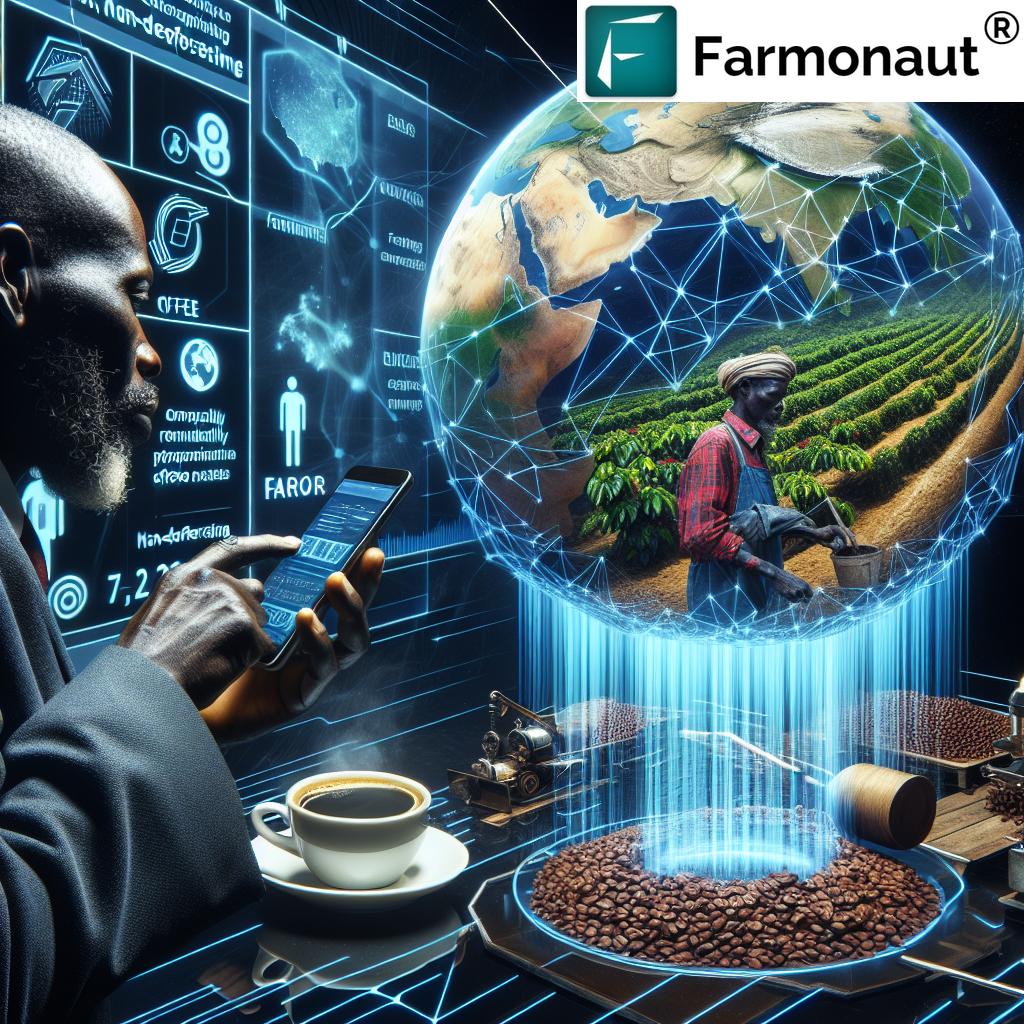
Comparison of EUDR Compliance Methods
| Compliance Aspect | Traditional Method | Farmonaut’s Geolocation Solution | Estimated Time Savings | Estimated Cost Savings | Environmental Impact |
|---|---|---|---|---|---|
| Farm boundary mapping | Manual GPS surveys | Satellite imagery analysis | 70-80% | 50-60% | Reduced on-site visits |
| Deforestation risk assessment | Ground-based surveys | AI-powered satellite monitoring | 80-90% | 60-70% | Early detection of risks |
| Supply chain traceability | Paper-based documentation | Blockchain-based digital tracking | 60-70% | 40-50% | Reduced paper waste |
| Data reporting and verification | Manual compilation and audits | Automated data collection and reporting | 75-85% | 55-65% | Improved accuracy and transparency |
This comparison clearly illustrates the advantages of using geolocation-based solutions for EUDR compliance. The significant time and cost savings, coupled with positive environmental impacts, make a strong case for adopting these innovative technologies.
Steps for Coffee Farms to Implement Geolocation-Based EUDR Compliance
- Assess current traceability systems and identify gaps
- Choose a geolocation technology provider (like Farmonaut) that offers comprehensive solutions
- Map farm boundaries and coffee plots using satellite imagery
- Implement a blockchain-based traceability system to track coffee from farm to export
- Train staff and farmers on using new technologies and data collection methods
- Regularly monitor and update farm data to ensure ongoing compliance
- Prepare for audits by maintaining detailed records and reports
Get started with our iOS app for seamless farm management: 
The Future of Coffee Production Under EUDR
As the coffee industry adapts to the EUDR, we can expect to see significant changes in how coffee is produced, traded, and consumed:
- Increased investment in sustainable farming practices
- Greater emphasis on direct trade relationships between roasters and farmers
- Rise of “deforestation-free” as a key selling point for coffee brands
- Acceleration of digitalization across the coffee supply chain
- Potential price premiums for fully traceable, EUDR-compliant coffee
These changes present both challenges and opportunities for the coffee sector. By embracing geolocation technology and sustainable practices, coffee producers can position themselves at the forefront of this industry transformation.
Conclusion: Embracing a Sustainable Future for Coffee
The EU Deforestation Regulation represents a significant shift in how the coffee industry approaches sustainability and traceability. While the challenges of implementation are considerable, the potential benefits for both the environment and the industry are immense. Geolocation data and remote sensing technology offer powerful tools for meeting these new requirements efficiently and effectively.
At Farmonaut, we’re committed to supporting coffee producers, roasters, and importers in navigating this new regulatory landscape. Our innovative solutions provide the precision, transparency, and efficiency needed to thrive in the era of EUDR compliance. By embracing these technologies, the coffee industry can not only meet regulatory requirements but also build a more sustainable and resilient future for coffee production worldwide.
As we move forward, collaboration and innovation will be key. By working together and leveraging cutting-edge technology, we can ensure that the rich tradition of coffee cultivation continues to thrive while protecting our planet’s precious forests.
Explore our API for custom integration of geolocation data into your systems: Farmonaut API
For detailed information on how to use our API, check out our developer documentation: API Developer Docs
FAQs About EUDR Compliance for Coffee Farms
- Q: What is the EUDR and how does it affect coffee producers?
A: The EU Deforestation Regulation (EUDR) is legislation aimed at ensuring products sold in the EU do not contribute to deforestation. It requires coffee producers to provide detailed geolocation data and prove their coffee is “deforestation-free.” - Q: When does the EUDR come into effect?
A: While initially set for December 30, 2024, there’s a proposed delay to December 30, 2025, for large companies and June 30, 2026, for smaller enterprises. - Q: How can geolocation data help with EUDR compliance?
A: Geolocation data provides precise farm location information, enables deforestation monitoring, and supports supply chain traceability, all crucial for EUDR compliance. - Q: What challenges do smallholder farmers face in meeting EUDR requirements?
A: Smallholder farmers may lack the financial resources and technological know-how to implement the necessary traceability systems and collect required data. - Q: How can technology like Farmonaut’s solutions assist in EUDR compliance?
A: Farmonaut offers satellite-based crop monitoring, AI advisory systems, and blockchain-based traceability solutions that can help farmers meet EUDR requirements efficiently and cost-effectively.




